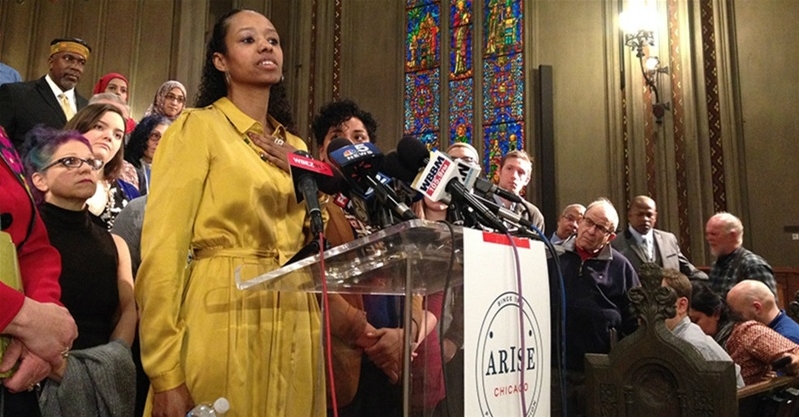
Officials at Wheaton College have agreed to receive an annual visit from a Muslim or Jewish scholar following the debate surrounding a political science professor who asserted that Christians and Muslims worship the same God.
On Wednesday, Larycia Hawkins, the first African American female tenured professor in Wheaton College history, announced she and the Evangelical college had agreed to mutually part ways after nearly two months of controversy.
"The administration and Dr. Hawkins have come to a place of resolution and reconciliation," Wheaton President Philip Ryken said in an email to the campus over the weekend. "With a mutual desire for God's blessing, we have decided to part ways."
"Each year we will invite a scholar from the Jewish or Muslim community for respectful dialogue about interfaith relations," Ryken announced at a press conference following the decision. "And today, I announce that in the name of Dr. Hawkins we are establishing an endowed scholarship for interns to pursue a summer program or project in peace and conflict studies."
As reported by The Gospel Herald, Hawkins took to Facebook on Dec. 10, 2015, to announce that she was going to wear a hijab throughout the Advent to show solidarity with Muslims.
While Wheaton does not have a specific position on headscarves, the professor was placed on paid administrative leave after stating that Muslims and Christians worship the same God -- a claim which contradicts the Evangelical institution's statement of faith.
"I stand in religious solidarity with Muslims because they, like me, a Christian, are people of the book," Hawkins wrote at the time. "And as Pope Francis stated last week, we worship the same God."
The Chicago Tribune notes that amid public outcry, Wheaton reviewed Hawkins' Facebook post before asking her to submit a reconciliatory theological statement, which she did.
Later in December, the college met with Hawkins to see if a reconciliation agreement could be reached. The professor reportedly turned down a proposal that would have stripped her of her tenure for at least two years, prompting Wheaton to announce that the two sides had reached an impasse.
However, the announcement that Hawkins and Wheaton decided to part ways surprised many, as it came just days after a faculty diversity committee at the college concluded that the professor suffered discrimination "on the basis of race, gender, and to a lesser extent, marital status."
The provost of the college had recommended that she be fired, and she was to face a hearing that had been scheduled for Thursday.
Hawkins and Ryken held a joint press conference at the First United Methodist Church in Chicago on Wednesday to discuss the decision further, where the professor referred to Wheaton "an important phase of my spiritual journey." Among others, she thanked her students, "who have really taught me what embodied solidarity looks like."
"Today is Lent, the beginning of a season of fasting, a season to reflect where we are on our spiritual journeys, who we are and what we are becoming," she stated. "So, I ask you: Who are you? Do you find yourself in your neighbor? Because yes, we are all created in the image of the divine. But we find ourselves in our neighbors, we find ourselves in other people."
According to reports, over 30 Hawkins supporters simultaneously held a protest on the steps of Edman Memorial Chapel calling on officials to "confess and repent of the sins of racism, sexism and Islamophobia, and recognize that all humans have dignity and are created equal in the eyes of God."
Ryken acknowledged that while Hawkins and the school have reconciled, there are many more steps to be taken on the part of the school: "In saying Wheaton College is reconciled to Larycia Hawkins we are not saying that everyone on every side of this conflict is totally satisfied. Nor are we saying that we simply move without addressing the issues that brought us to this place," he stated.
He added that he was "saddened by the brokenness we have experienced in our relationship and the suffering this has caused on our campus and beyond," and was "grateful to come to a place of resolution and reconciliation ... by Jesus Christ."






